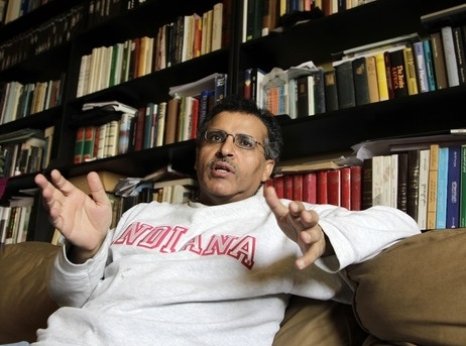Saudi Arabia: Lift Mohammed Al-Qahtani's Travel Ban

In March 2012, Mohammed al-Qahtani and Dr. Abdullah al-Hamid, founders of the Saudi Civil and Political Rights Association (ACPRA), which was established in 2009, were interrogated for their human rights work. In March 2013, they were sentenced to 10 and 11 years in prison, respectively. Dr. Abdullah al-Hamid suffered from a stroke on 9 April 2020 and remained in detention, despite being in a coma in the intensive care unit at al-Shumaisi Hospital in Riyadh. He later died on 24 April 2021.
Mohammed al-Bajadi, also one of the 11 founding members of ACPRA, was arrested in March 2011 and tried before the notorious Specialized Criminal Court for attending a peaceful protest outside the Ministry of Interior in Riyadh. In April 2012, he was sentenced to four-years in prison followed by a five-year travel ban based on a range of charges linked to his peaceful human rights activism. After being released and re-arrested on multiple occasions, Mohammed al-Bajadi was detained once again in May 2018 and remains in detention without charge or trial.
Members of the now disbanded ACPRA have been extensively targeted by the Saudi Arabian authorities over the past decade. ACPRA has reported on human rights violations and helped families of detainees held without charge to bring cases against the Ministry of Interior before the Board of Grievances, an administrative court with jurisdiction to consider complaints against the state and its public services.
As of January 2025, Amnesty International has documented the cases of 85 individuals who had been prosecuted since 2013 solely for exercising their rights to freedom of expression, association and peaceful assembly, including human rights defenders, peaceful political activists, journalists, poets and clerics, in Saudi Arabia. Amnesty International is aware that the real number of such prosecutions is likely much higher.
Amnesty International documented the use of travel bans against activists and human rights defenders following their release from prison. Arbitrary travel bans are also sometimes imposed without a court order, with people only finding out about it when they try to travel and are turned back by Saudi Arabian authorities at airports or border crossings. These bans also affect family members of Saudi activists, who may live abroad, preventing them from reuniting.